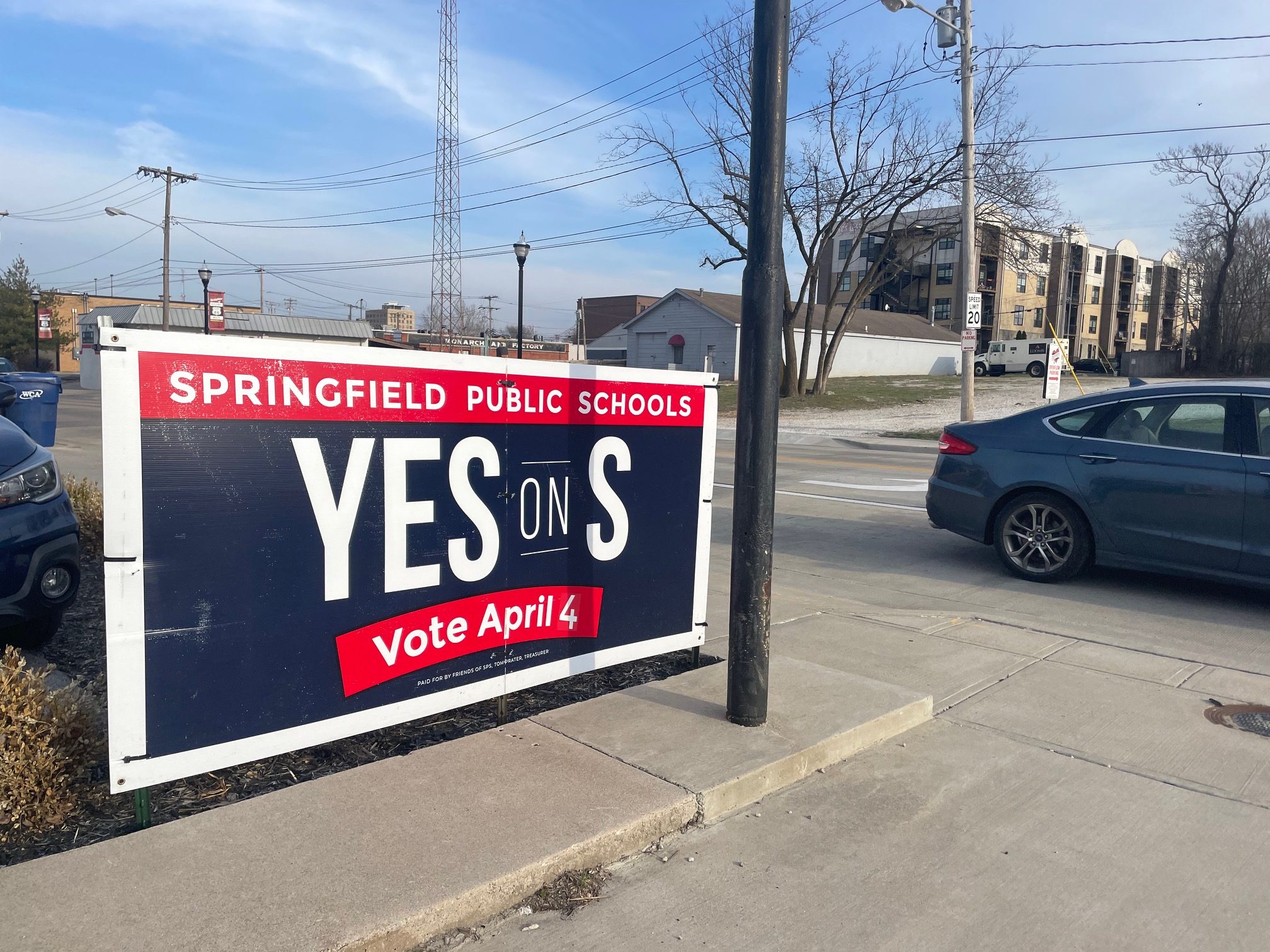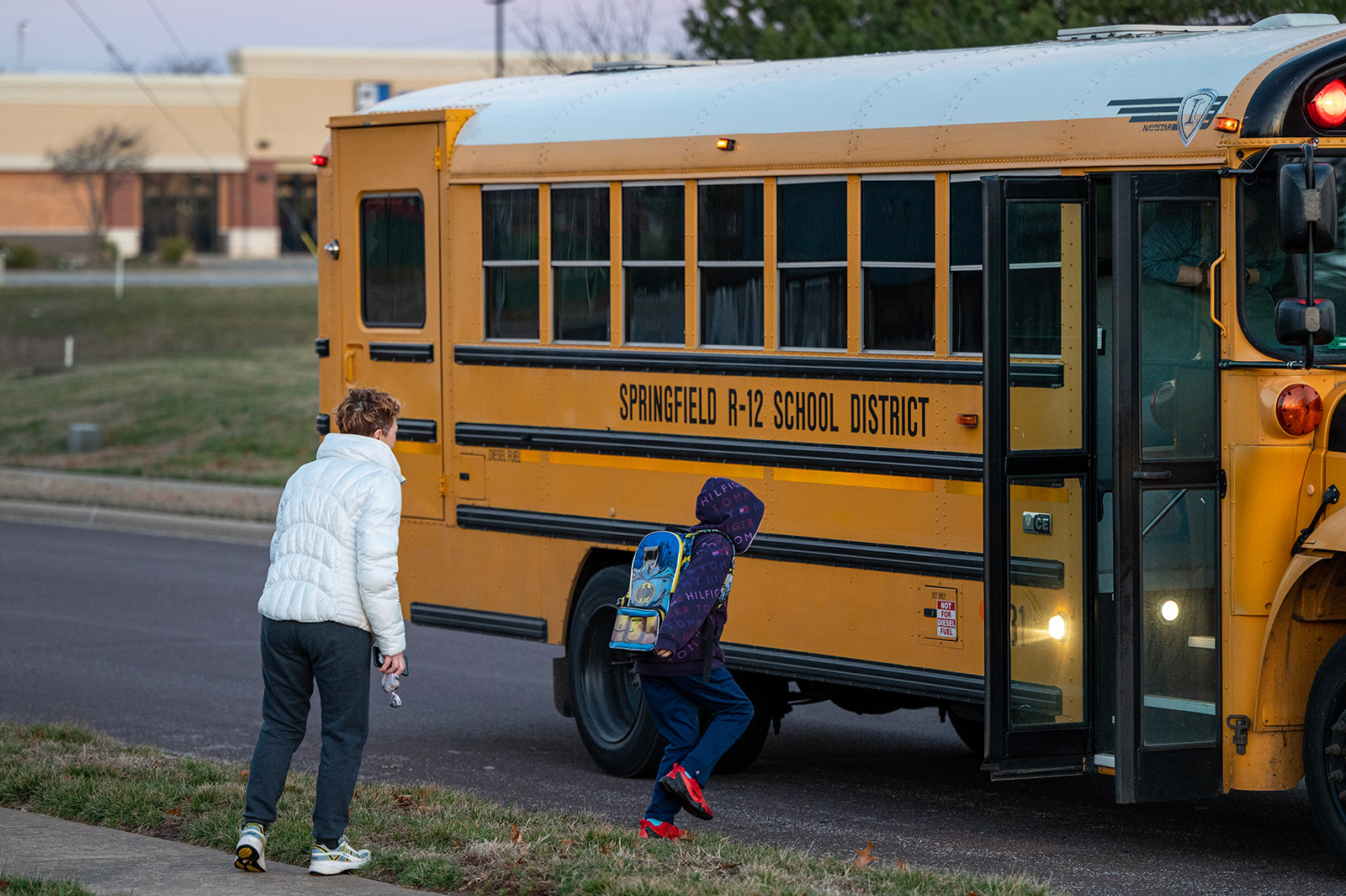VOTING GUIDE |
Last in a series of in-depth reports on key issues facing Springfield Public Schools and on candidates seeking school board seats in the April 4 election.
As Springfield school board members worked through reshaping the district’s strategic plan last November, they hit a snag over wording — and the ideological debate still resonates today as voters prepare for a pivotal April 4 election.
In the words of one candidate, it’s a chicken-or-the-egg dilemma.
- Should our schools be focused solely on academic preparation?
- Or is the well-being of each student — and their ability to be ready to learn — an equally important focus?
Springfield Public Schools board members last November compromised on a mission statement that commits “to the well-being of each student by providing high-quality academic opportunities.”
But the debate foreshadowed divisions that have surfaced in a series 4-3 votes — including, most explosively, during the Feb. 28 decision to strip Maryam Mohammadkhani of her vice presidency role weeks before the election.
The upcoming election could swing the outcome of future narrow votes, given that one of the four who supported the Mohammadkhani decision — current board president Denise Fredrick — isn’t seeking re-election, while another of the four-member majority — Shurita Thomas-Tate — is seeking a second term.
The four candidates for two seats, in many ways, fall into two camps. At a March 23 Springfield Chamber of Commerce candidate forum, Thomas-Tate and retired SPS administrator Judy Brunner were quick to point out their lifelong educational backgrounds during their 60-second introduction statements. In contrast, Landon McCarter and Chad Rollins pointed to their roles as parents of students in the district.
The candidates are split along bright lines:
- Two emphasize addressing the needs children bring with them to school, so they are better prepared to learn, vs. two who focus almost exclusively on the traditional 3Rs, and would largely leave other issues to parents and social services.
- Two represent the education establishment and believe in the value of having some educators at the helm, vs. two who emphasize their credentials as outsiders and the value of having more business people provide oversight.
- Finally, whether they like it or not, the candidates are being split into camps by people who have weighed in on the school board race at a time when public school districts are on the front lines of national, state and local culture wars.
How recent 4-3 votes illustrate divide that could flip April 4 (click to read more)
Most Springfield Public Schools Board of Education votes this past year have been agreed upon unanimously by the seven-member board. But, there have been a handful of 4-3 votes, with a trio of board members — Kelly Byrne, Maryam Mohammadkhani and Steve Makoski — most often voting (or abstaining) together on the losing side.
If Thomas-Tate loses and voters elect either McCarter or Rollins, or both, the scales likely would tip in the opposite direction on some votes. Both candidates have said they disagreed with the board’s 4-3 decision to remove Mohammadkhani from the vice president’s role after students said she disrupted a Youth Empowerment Summit session centered around racial trauma. McCarter and Rollins also share similar views questioning how the district prioritizes diversity, equity and inclusion initiatives, saying academics should be the top priority.
Not all 4-3 votes have fallen the same. Scott Crise sided with Byrne, Mohammadkhani and Makoski in a February decision against the purchase of Chromebooks for SPS kindergarten students to have 1-to-1 access. McCarter and Rollins have said they supported that decision, too.
- Last-minute efforts to tweak the wording on the district’s strategic plan
- A request to make Brother-to-Brother leaders present on the group before the district contracted with it for expanded mentorship services
- The decision to oust Mohammadkhani from her role as vice president of the school board
- Chromebooks for kindergartners

Debate over emphasis on student ‘well-being’ illustrates divide
The Missouri Department of Elementary and Secondary Education defines well-being as including “the physical (safety, environmental), social-emotional, and intellectual needs of students.” At SPS, there are myriad examples of efforts to address those needs inside and outside of classrooms, with public and private partnership funds. Among them:
- The free dental care-providing Tooth Truck
- Health, hunger and hygiene provisions provided to students by Care to Learn
- Lathan’s directives to provide food for students in need even during breaks in the school year .
- Expanded mental health services available to students and staff through a partnership between SPS and Burrell Behavioral Health
Mohammadkhani, who at a previous board meeting touted the volunteer efforts at the heart of the Springfield Council of PTA’s Clothing Bank, questioned during board debate on the strategic plan whether well-being should get top billing along with academics.
“I don't know if it needs to be in the mission statement,” the board’s vice president at the time said in November. “Of course, I want the well-being of each student, but we only have them for seven, eight hours of every day and I don't want to give this impression that we're going to usurp the parents, because ultimately the well-being of each student rests with the guardians.”
Board member Kelly Byrne concurred, saying: “In my view, we should be singularly focused on the mission of the most important goal and to not throw anything else in there that doesn’t have a better place further down in the plan. To me, it’s focusing on academics.”
Those are views shared by McCarter and Rollins.
“The well-being, in my opinion, is a parent's responsibility and the school's responsibility is to teach and equip the students for the next level, whatever that is,” McCarter said in an interview with the Hauxeda.
(If I'm a student with a teacher focusing on my well-being instead of academics) I might have gotten more hugs at school than at home, but I don't know the dang subject.
Landon mccarter
He said well-being is best addressed by teaching and equipping them for the real world. He presented a hypothetical about a student who was cared for by an algebra teacher but didn’t get taught algebra.” “So now I'm in Algebra II,” he said. “You know, I might have gotten more hugs at school than at home, but I don't know the dang subject. So that's a problem.”
Rollins said: “I think (academic achievement) should be the No. 1 goal for any school, because I mean that's what we're there for, to learn the core subjects. That's what they're there for. And I think the shift as far as well-being goes, I mean, quite honestly, that is with the parents, to tell you the truth.”
During the Nov. 29 board meeting, Thomas-Tate said she was open to tweaking the language of the mission statement but was married to the inclusion of student well-being in it. In a Daily Citizen interview, Thomas-Tate reiterated a point she made during debate, saying student learning happens when students are well taken care of.
“I don’t think they are separate, nor are they in opposition of one another,” Thomas-Tate said at the meeting. “I think they work hand in hand. And all developmental learning specialists will talk about the social-emotional development that goes along with your cognitive and academic preparation and learning.”
And Brunner, who spent 18 years of her SPS career as a principal at elementary, middle and high school levels, said academic achievement and well-being can’t be separated.
“If students aren't taken care of in that manner, the academic achievement won't be there ... It's like, which came first, the chicken or the egg?
judy brunner
“If students aren't taken care of in that manner, the academic achievement won't be there,” she said. “It's like, which came first, the chicken or the egg? I'm telling you, the well-being part is very important. And that contributes significantly to school safety. Kids have to trust the adults. They have to feel like it's a safe environment. And when those things are in place, they're much better prepared to sit and listen to the lectures or to do the lab or whatever it is that they're learning that day. The well-being is pivotal to the learning.”
The final version of the strategic plan mission statement says as much. It now reads: Springfield Public Schools “is committed to the well-being of each student by providing high-quality academic opportunities.”
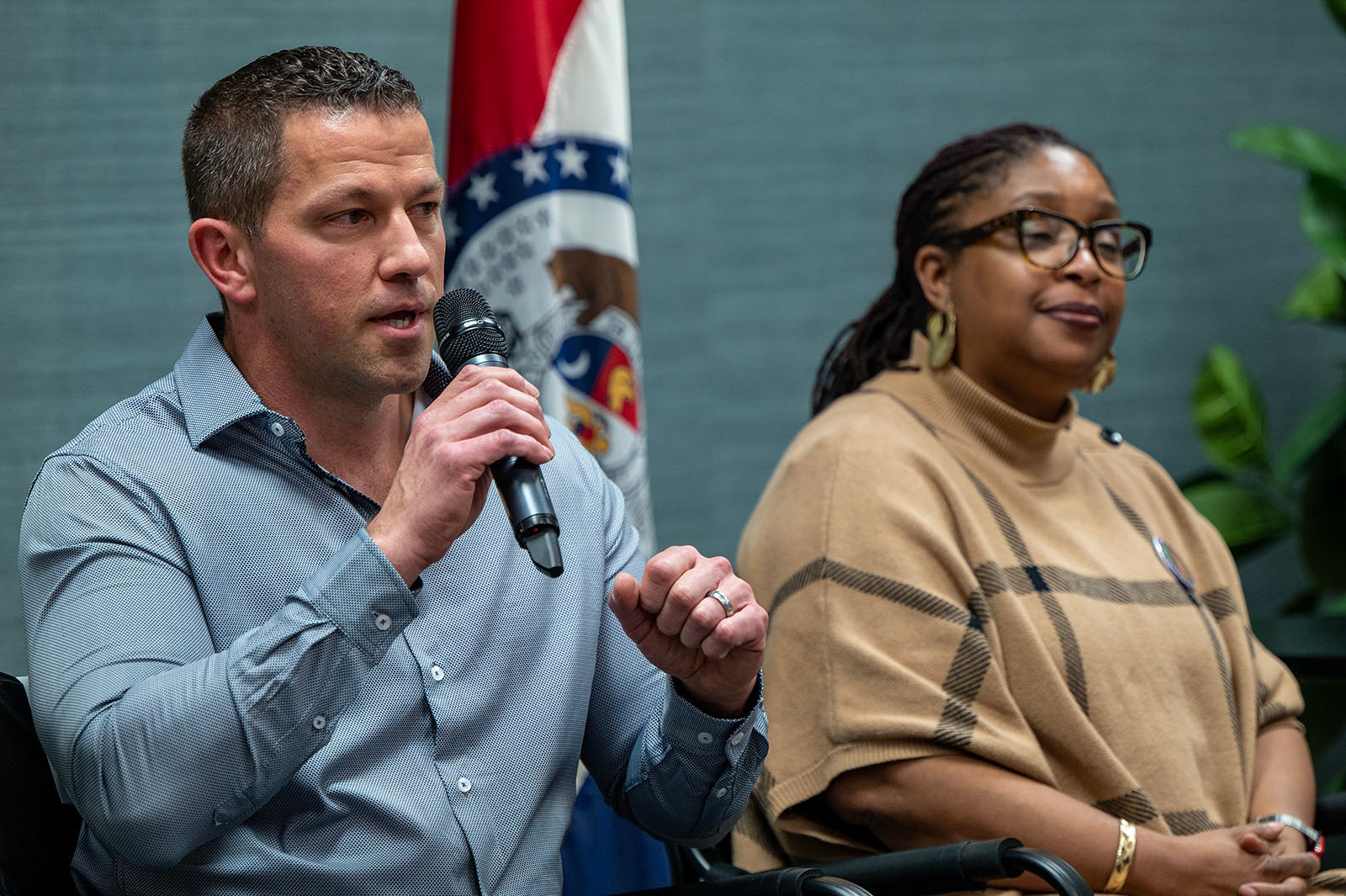
Could voters choose a school board with no educators?
Earlier this year, after members of the Springfield NEA interviewed the four candidates (and subsequently endorsed Brunner and Thomas-Tate), McCarter posted on his campaign’s Facebook page that the educators’ union had backed two insiders.
“If anything, the SNEA has done us a favor and turned this into a ‘more of the same’ vs. ‘new perspective and accountability,’” he wrote. “I do not mean this statement to be divisive. It takes us all as a community to do what's best for our kids... Do you want more of the same?”
In an interview with the Daily Citizen, McCarter pointed to the district’s lagging state assessment test scores as an area where his perspective would be beneficial. He said a board member serves as a community liaison, and his discussions with community members have led him to prioritize eliminating “distractions” — a term that for McCarter encompasses issues from student behavior to the flying of Pride flags in Kickapoo classrooms. McCarter said the district should be laser-focused on academics during the 174-day school year. While he said you can’t pin the district’s academic performance levels on one board candidate, he said supporting an educator “that’s been in the belly of the beast” for their career won’t help.
“And if you don't want more of the same, then maybe you should vote that way,” he said.
Last spring, voters chose businessmen Byrne and Makoski, ousting incumbent Charles Taylor, a Drury professor and lifelong educator. If McCarter and Rollins were to win the two seats April 4, no one on the seven-member school board for the largest district in the state would have a professional background in education. (Fredrick, a retired SPS science teacher and administrator, chose not to seek a fifth term. Among other continuing members, Danielle Kincaid is an attorney; Mohammadkhani is a retired pathologist; Byrne, Crise and Makoski all hail from the business sector.)
Mohammadkhani, in a recent interview on Mornings with Nick Reed, framed the upcoming election in terms of establishment vs. populist.
“This is a really simple question posed to the people,” Mohammadkhani said. “Do you want things to just be the way they are, which is, we like it just as it is and you shut up and go away? Or do you want to solve the problems? I mean, do you want somebody who's never going to question anything and who's part of the establishment or do you want something different? It's really simple, right? It's not political in any way.”
Rollins shares similar views to both McCarter and Mohammadkhani. He said his background as both a pharmacist and a motivator — he’s been leading Saturday morning fitness training sessions for years — would be beneficial on the board. At recent candidate events, he’s pointed to his experience as a preceptor for pharmacy students as well as his role as a parent of seven, five of whom are still in the SPS system.
I think that we have a big task ahead of us to get us up back where we used to be and get those test scores coming back up.
Chad rollins
“I think that we have a big task ahead of us to get us up back where we used to be and get those test scores coming back up,” Rollins said during the March 23 Chamber forum. “And I'm a big, big proponent for moving more toward pencil, paper and textbooks — with technology as well. And I've seen that coming home with my younger students. It brings in parental involvement. And I think if we look down that path a little bit more, I think that we're going to be successful.”
The two educators seeking seats on the school board, however, trumpet their credentials and told the Daily Citizen educators are needed on a school board.
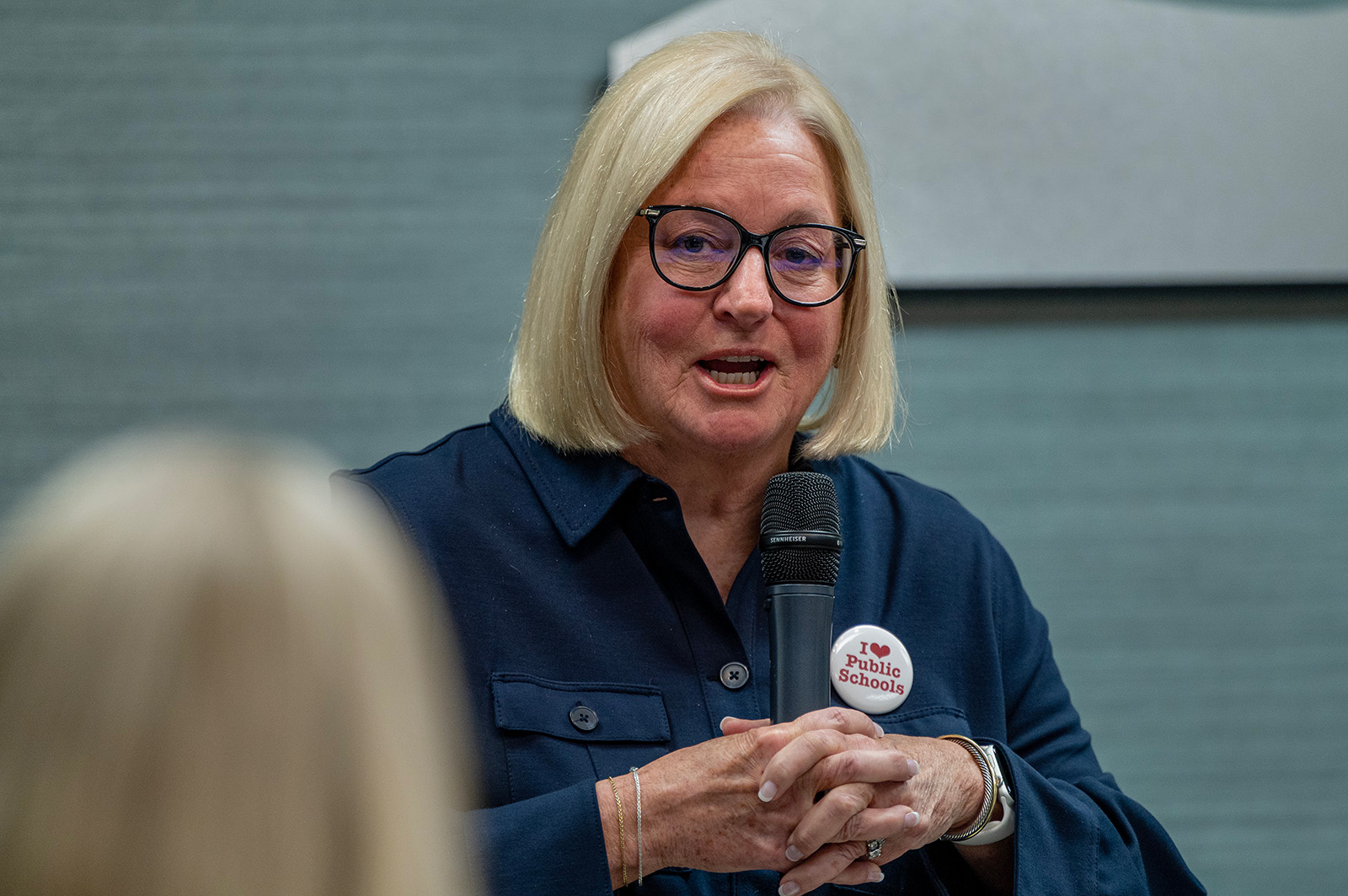
In her opening remarks at the Chamber forum, Brunner said she’s a career educator who has worked in schools — Wilder, Reed, Parkview, Central — representing a broad socioeconomic and geographic profile.
“It is not a one size fits all district,” she said. “Different neighborhoods have different needs. And I think I have a really good understanding of what some of those needs are. And that's what I would like to bring to the table on the Board of Education.”
Brunner told the Daily Citizen she’s proud of both her education credentials as well as her experience in the business sector. Brunner is the author of numerous books centered around school safety issues. She’s traveled the country to provide consulting work to help district leaders address bullying and to better balance enhanced school safety with maintaining a welcoming environment for students, staff and the public at large. The subjects she addresses as a consultant are ones she navigated as a professional educator.
“I think you have to have an understanding of the way the school district works,” Brunner said. “That not only is beneficial in terms of being a champion for the things that are working but also to recognize those things that really need to be adjusted.”
With an issue like test scores, she said, the general public doesn’t want to hear excuses. Brunner said district employees want to see improvement too, and she trusts the SPS team from the top down to be able to take data, disaggregate it and identify what it means and how to respond to it.
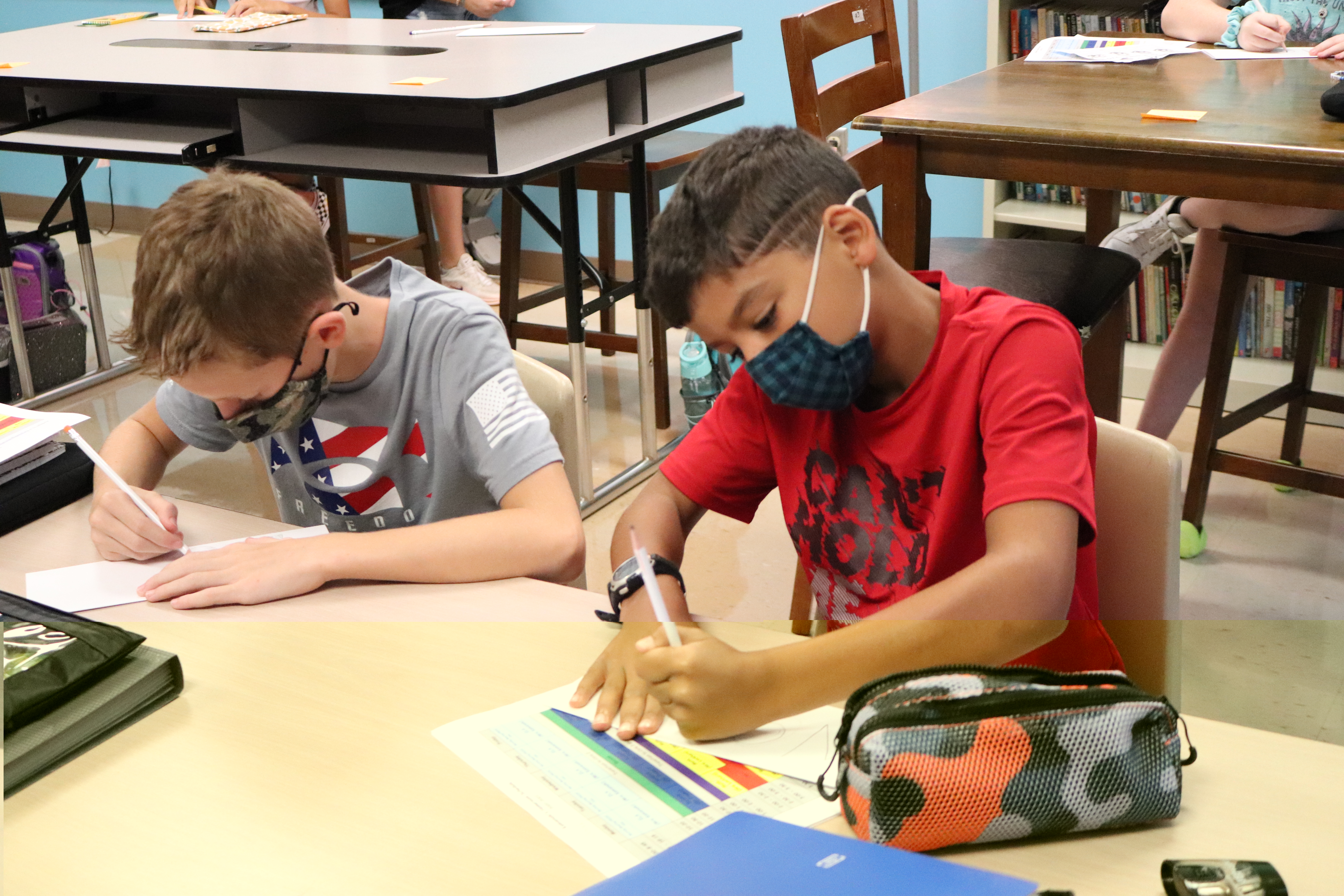
“I was disappointed, certainly in some of the information that was released recently from DESE,” Brunner said. “But on the other hand, you take it, you work from where you are, and you look forward. You don't look back. You look forward, and you try to plan accordingly.”
With Fredrick, a retired SPS teacher and the current board president, stepping down, Thomas-Tate would become the only member of the board entering a second term of service if re-elected. With a new and at times divided board, Thomas-Tate said her experience as a member and her career in the field of public education are assets. She said she brings a researcher’s mind to her work on the school board (and the Missouri State University Faculty Senate and Springfield’s NAACP chapter, where she also serves). She does the homework, she said.
“I'm really, truly committed to this,” she said. “And I've been committed for a long time, so I've paid attention for a very long time. It's not a new phenomenon that I had to learn about. I came in already engaged. And with board members who are now entering without that level of history and engagement, there needs to be some stability on the board of someone who understands how we got to where we are, what preceded where we are, and what are the things happening on a larger scale.”
Thomas-Tate also said she challenges the narrative that public schools are failing and said that, from her view as an educator, standardized tests aren’t the only way to measure if a student or a district is failing or succeeding. (Recently, the U.S. Secretary of Education said standardized tests should be used as a “flashlight,” rather than a “hammer.”)
We have to look at different metrics of success — graduation rates, having a career path when they finish school, going into the military, going into colleges and universities ... We have some holes and gaps that need to be fixed, but overall, we are preparing our students for success ...
Shurita thomas-tate
“We have to look at different metrics of success — graduation rates, having a career path when they finish school, going into the military, going into colleges and universities,” she said during the Chamber event. “I'm a university professor, and so the students who come to me, they're college ready. We have some holes and gaps that need to be fixed, but overall, we are preparing our students for success by looking at more than just a test score.”
In touting ways that she said the district has increased pathways to success for students, Thomas-Tate pointed to programs that have not stayed the same during the course of her three years on the board. They’ve grown and expanded. Increased capacity in SPS early childhood programs is a game-changer, Thomas-Tate said, “because the way that we transform students' lives is by starting early, by making sure that they have the resources and tools that they need early on so they don't fall behind.” She also has pointed to the district’s increasing body of choice programming, as well as a major overhaul of transportation policy to make sure kids across the district can get bused to places like the Ag Academy or an International Baccalaureate school to embark on career and educational pathways.
Voter turnout low in school board races
According to a 2020 National School Board Association report, voter turnout for school board elections has in recent years been “discouragingly low” across the country — often hovering in the 5 to 10 percent range. In recent April elections where Springfield school board candidates have been on the ballot, Greene County voter turnout has hovered in the teens.
- 2022: 14.7 percent (24,961 of 170,391 registered voters)
- 2021: 13.3 percent (23,914 of 180,432 registered voters)
- 2019: 17.3 percent (30,160 of 174,491 registered voters)
(In 2020, only two candidates — Fredrick and Thomas-Tate — submitted signatures and ran for two open seats, meaning the district didn’t hold a vote.)
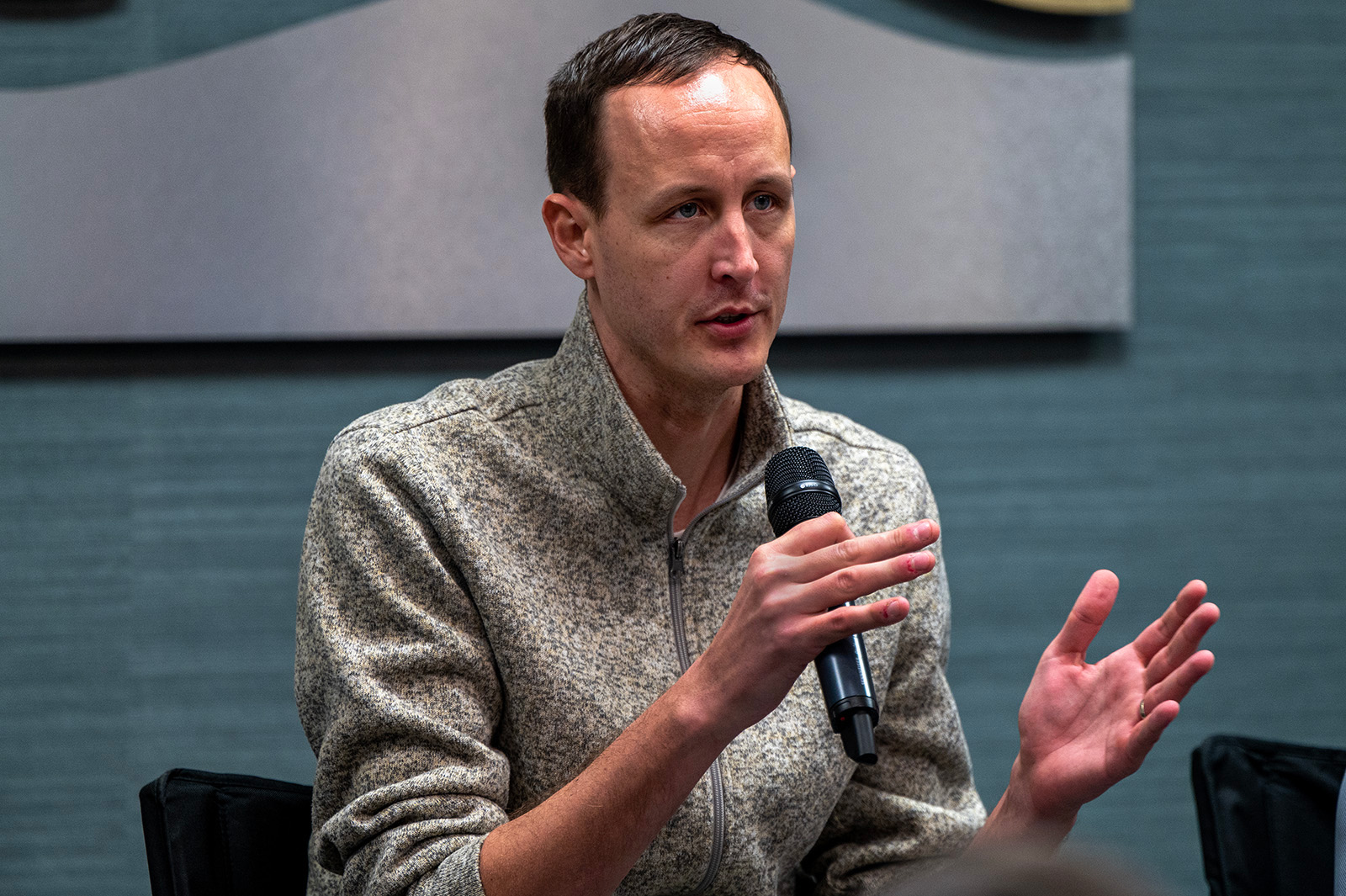
Culture wars playing out in school vote
During recent candidate forums held at Ozarks Technical Community College and the Springfield Chamber of Commerce, the questions directed at the four people running for the school board focused mostly on schools. Attendees and moderators asked about student behavior issues, teacher retention, the district budget, how the business community can support SPS, what the district is doing right and what could improve.
Outside of those forums, it’s been a different story. Last fall, when Thomas-Tate announced she would seek a second term on the board, she said she knew personal attacks would be part of the deal. Last April, Taylor was targeted by ads alleging he was espousing views in line with Critical Race Theory.
“It was a nasty, nasty smear attack where they were straight out lying,” Thomas-Tate said in October. “And I know that’s coming. That has already come. That has been a part of the past, the present and I’m sure the future.”
As of March 24, no PACs had bought ad time on local TV stations. But all four candidates have been the target of ideologically-centered criticism in the leadup to April 4. Recently, Thomas-Tate and McCarter have drawn much of the fire.
Thomas-Tate was accused of self-dealing with a nonprofit she founded by a local watchdog website owner. The same website questioned her patriotism because she didn’t say the Pledge of Allegiance at board meetings and questioned if the American flag would qualify as a political symbol in SPS classrooms given that Pride flags were removed because they were deemed political.
Regarding the self-dealing allegation, Thomas-Tate and an SPS spokesman both told the Daily Citizen that, because she’s not an officer at her literacy nonprofit and received no money from the district, the complaint was unwarranted. As for pledge, Thomas-Tate told the Springfield News-Leader she only pledges allegiance to God.
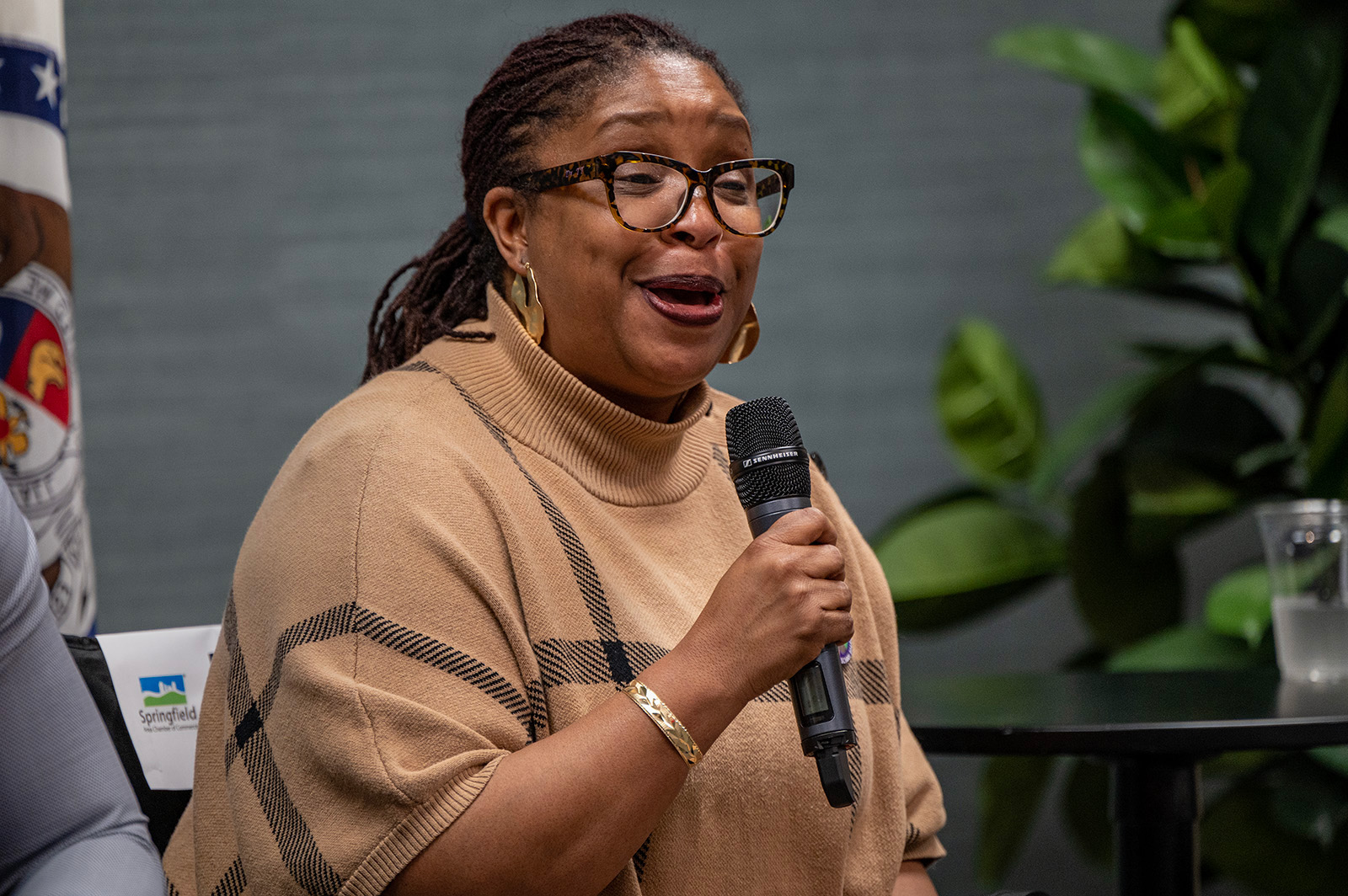
After Makoski, a Navy veteran who wore a bomber jacket and American flag-patterned shirt to the Feb. 28 board meeting, read a poem about the meaning of the Pledge of Allegiance during the meeting, Thomas-Tate thanked him for his service.
“I am not anti-American,” she told the Daily Citizen in early February, after a half-minute clip from the Pride flag meeting was posted on Facebook. “I am very grateful to be a part of this country. I have family members who have served this country. I have family members who have served this country when this country didn't even see them as full human, or full citizens, of this country — my grandfather, who fought before the Civil Rights Act, for this country. Come back here, and you're still not fully capable of doing what the people you serve with are able to do here. So absolutely, I am grateful to be in this country and I honor those who serve this country. But I also recognize some of the challenges that our country has too, which is a thing that we're not supposed to say these days, which is a dangerous thing to say.”
McCarter drew criticism last week for a racially charged meme posted on his personal Facebook account in 2018. It was a cartoon titled “What if Rapunzel was Black?” where the punchline was that Black hair jutted out of a tower’s windows rather than draping down from them. McCarter, in a statement to the News-Leader that he later shared with the Daily Citizen, called it a distraction that he did not recall posting at a time when he said he gave digital marketing staff access to his personal social accounts.
Shortly after, McCarter, a member of James River Church, was questioned by a commenter on his campaign page about whether or not he believed a woman who attended a faith healing event at the Joplin James River campus had regrown three toes. He commented on the post that he wouldn’t spend time during the final weeks of the election responding to that, and later posted that his Christianity was under attack.
During a March 4 interview on the All Out Law radio show, McCarter said he drew inspiration to run for the school board from a James River class his son was taking to find his purpose. The fourth session of the class, he said, was about activating your faith. McCarter said he was inspired, saying it was time to “put down your highlighter and pick up your sword and take your place in the battlefield.” In a brief conversation with the Daily Citizen after the Chamber forum, McCarter said his belief in Christ defines him as a person, but not as a board candidate.
“The school system is not the place for me to insert my values on anyone else,” he said. “I can be who I am and carry myself in a way that I am going to carry (myself). However, I don't think it's fair for teachers, administrators, board members, anyone to assert their values over anyone else's child, or anyone else's experience.”
He said ideology shouldn’t factor into a voter’s decision in the nonpartisan race for the school board.
“I don't think they should be though,” he said. “I love diversity, I would love my (children) to be taught by someone that, you know, believes a different way or thinks a different way or has a different worldview or whatever that is. I'm just not interested in that being any sort of a focal point. Again, I want good teachers and good administrators. I don't care about the other stuff as much as I care about teaching curriculum. Just as I'm sure an atheist would not want me to go proselytize to their kid, just as much as I don't want an atheist to come to my kid and say, ‘Hey, when you go, you better ask your mom this question.' That's not what we're doing here. That's crossing the line.”
To vote April 4, 2023
Voter registration is closed
No excuse absentee voting is available at the Greene County Elections Center, 1126 North Boonville Ave., Monday-Friday between 8 a.m. and 5 p.m., up to and including April 3, and also will be available at the Elections Center on Saturday, April 1, from 9 a.m. to 1 p.m.
In-person absentee voting will be available at the Library Center Tuesday-Friday, March 28-31, and Monday, April 3, between the hours of 9 a.m. and 4 p.m.
Please note that in order to vote in-person absentee, by statute voters must present one of the following forms of photo identification:
- A non-expired Missouri driver or non-driver license
- A non-expired military ID, including a veteran’s ID card
- A non-expired United States passport
- Another photo ID issued by the United States or the state of Missouri which is either not expired or expired after the date of the most recent general election.
Information on absentee voting, election regulations and polling locations
Greene County Clerk-issued sample ballot
RELATED SCHOOL BOARD ELECTION STORIES
All 4 candidates for Springfield school board plan to vote ‘yes' on $220M bond issue
Where do the school board candidates stand on Proposition S? All four are pro-bond. Here's why
School start times frustrate many Springfield parents. How we got here — and is there a way out?
Solving school start times is deeply intertwined with solving the Springfield busing situation
Is it disruptive kids, stress or pay? SPS board candidates weigh in on why teachers are leaving
Springfield's school board candidates discuss what they see as the main problems driving the teacher shortage.


